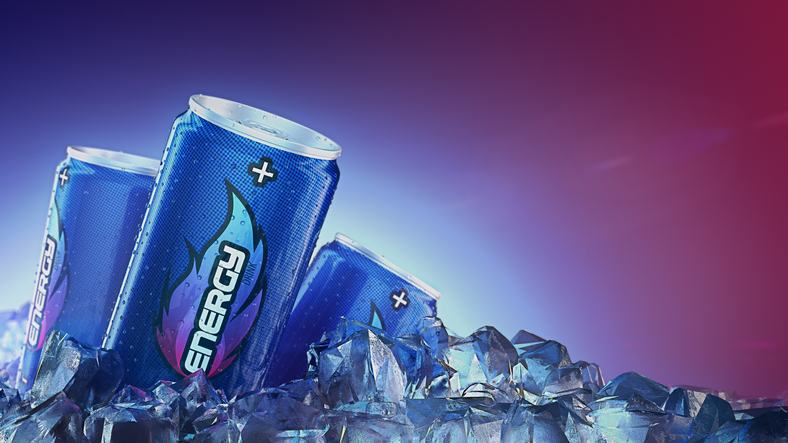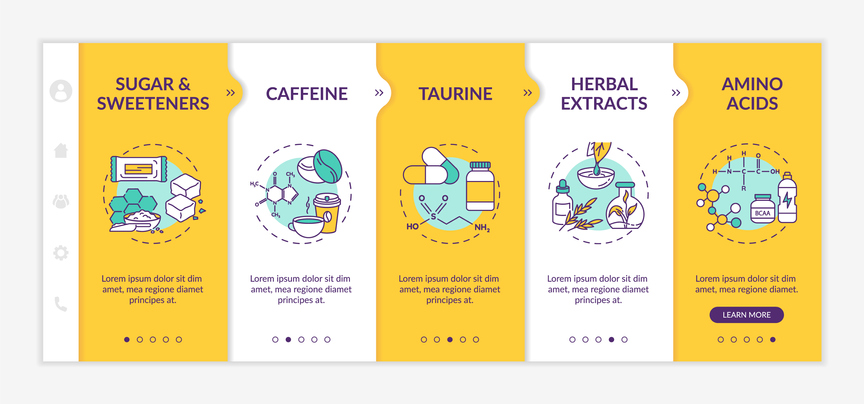We Have An Energy Drink Addiction Issue On Our Hands. It’s Time To Be Proactive

By Joy Stephenson-Laws, J.D., Founder
The first two things that come to mind when people think of addiction issues are usually drugs and alcohol. But, of course, we can really become addicted to anything whether it’s food, sugar, shopping, exercise and sex (just to name a few). Once a substance or habit starts to take over and negatively affect your quality of life, livelihood and health, to me, this is addiction.
And energy drinks can be addictive and dangerous.
Take, for example, the story of this young man.
A 21-year-old man who habitually consumed four cans of energy drink daily for about two years suffered from heart failure.
“The young man in question ended up in intensive care after experiencing 4 months of progressive shortness of breath on exertion, breathlessness while lying down (orthopnoea), and weight loss,” according to one report.
The report states that he consumed on average four 500 ml cans of energy drink daily. Each can contained 160 mg of caffeine (so he was consuming 640 mg of caffeine daily, and 400 mg is generally considered the maximum amount of caffeine an adult who is not pregnant or breastfeeding may consume daily).
The energy drink this young man consumed also contained taurine and “various other ingredients.” (Check out this pH Labs blog about what exactly may be in these energy drinks and how they may affect your health).
According to the report about the young man, “He also recalled that he had had bouts of indigestion, tremor and palpitations in the past for which he hadn't sought medical help. In the 3 months before he was admitted to hospital, he had been forced to discontinue his university studies because he felt so unwell and lethargic.”

He suffered heart and kidney failure that was so bad that his doctors considered a dual organ transplant.
“While he is still likely to need a kidney transplant, because of an unrelated condition, his heart symptoms and function improved significantly with drug treatment and after he cut out energy drinks completely.”
This young man appeared to have continued his excessive energy drink consumption despite not feeling well and having health issues. Sure, he may not have made the connection that the energy drinks were the culprit, but more than likely he suspected this could have been a possible cause. Energy drinks are extremely rich in caffeine, and caffeine is, afterall, probably one of the most frequently consumed drugs in the world.
Clearly, energy drinks can be very addicting.
Caffeine is a drug?Technically, yes.
“People may not think of caffeine as the most popular mood-altering drug in the world, even those who use it daily, by drinking coffee, tea, sodas or energy drinks as part of their routine,” according to Live Science.
“Yet many of us depend on regular doses of 1,3,7 trimethylxanthine, the chemical name for a bitter white powder known as caffeine, to help wake us up, keep us alert and get us through the daily grind. Whether it's brewed from a K-Cup, sipped in sweet tea, savored in chocolate or downed in cola, caffeine is a mild stimulant to the central nervous system that has become a regular fixture in everyday life.”
As I have blogged about many times, consuming caffeine in excess can be very problematic. Doing this may increase heart rate and elevate blood pressure. In fact, there is such a thing as a caffeine-induced heart attack. But there may also be some potential health benefits to drinking coffee in moderation.
I mainly take issue with energy drinks, especially when they get in the hands of young people. I previously blogged about a 16-year-old boy who died of a caffeine-induced cardiac event after drinking three caffeine-laced drinks (one of them being an energy drink) within a two-hour period.
There is also the very tragic story of this 41-year-old man, who didn’t even drink alcohol or smoke, who died in February of 2011 of a cardiac event due to his energy drink habit. He worked during the night as a mechanic and would usually have an energy drink. His wife found him one morning struggling to breathe.
“When he went to the hospital, the doctor told me that his sugar levels were sky high and was asking me all sorts of questions about his lifestyle, whether he took drugs and if he had any health issues. He was put in a medically induced coma and a therapeutic state of hypothermia to try and prevent any further damage to his brain caused by a lack of oxygen,” said his wife, according to one report.
“Eventually, the doctor asked me if he drank energy drinks, which I replied yes, but only once a day.”
The doctor told her it only takes one energy drink to throw off the heart’s rhythm and cause a heart arrhythmia.
How can we be proactive?To put it bluntly, I would avoid energy drinks at all costs. There is nothing beneficial to drinking them, and we don’t really know how our bodies will respond to the high amounts of caffeine and additives. Some people even mix energy drinks with alcohol which, of course, is dangerous.
They are called energy drinks for a reason. These drinks are sold with the promise to give you lasting energy, but instead give you a quick jolt to your nervous system . The best way to get a consistent, healthy source of energy is through a healthy lifestyle. Nothing is going to give you more energy than:
- Eating healthily and drinking plenty of water
- Getting good quality sleep
- Managing stress
- Exercising regularly
- Drinking alcohol in moderation (if at all)
- Avoiding smoking
- Taking routine nutrient tests and addressing nutritional imbalances and deficiencies with a competent healthcare professional
- Having a positive attitude
If you feel like you have a caffeine or energy drink addiction, there is no shame in getting professional help and speaking to your doctor. Remember, addiction can come in all forms and the sooner an addiction is addressed the better.
Enjoy your healthy life!
Disclaimer: This article is not intended to provide medical advice. Please consult with your doctor or another competent healthcare practitioner to get specific medical advice for your situation.
The pH professional health care team includes recognized experts from a variety of health care and related disciplines, including physicians, attorneys, nutritionists, nurses and certified fitness instructors. This team also includes the members of the pH Medical Advisory Board, which constantly monitors all pH programs, products and services. To learn more about the pH Medical Advisory Board, click here.







